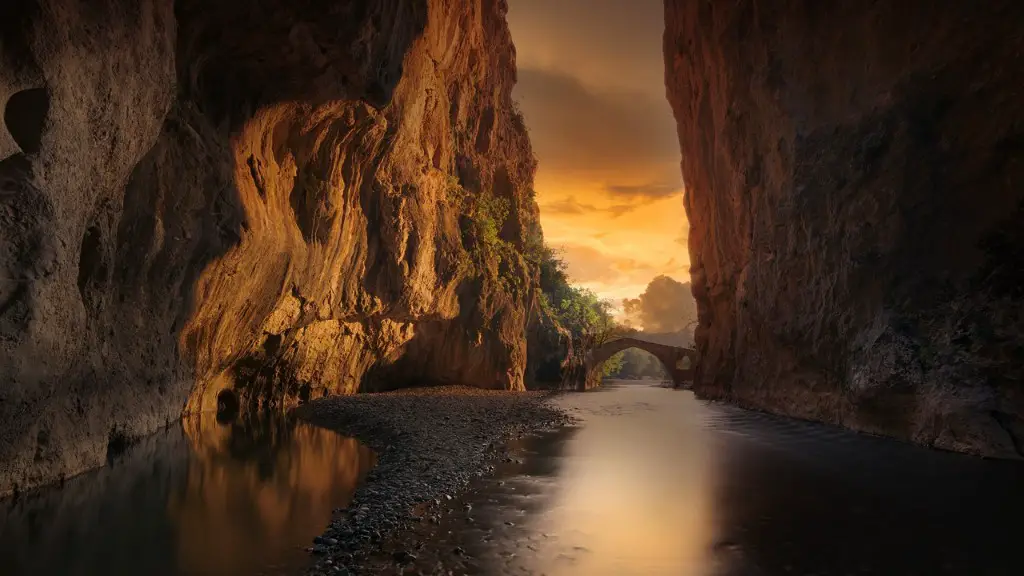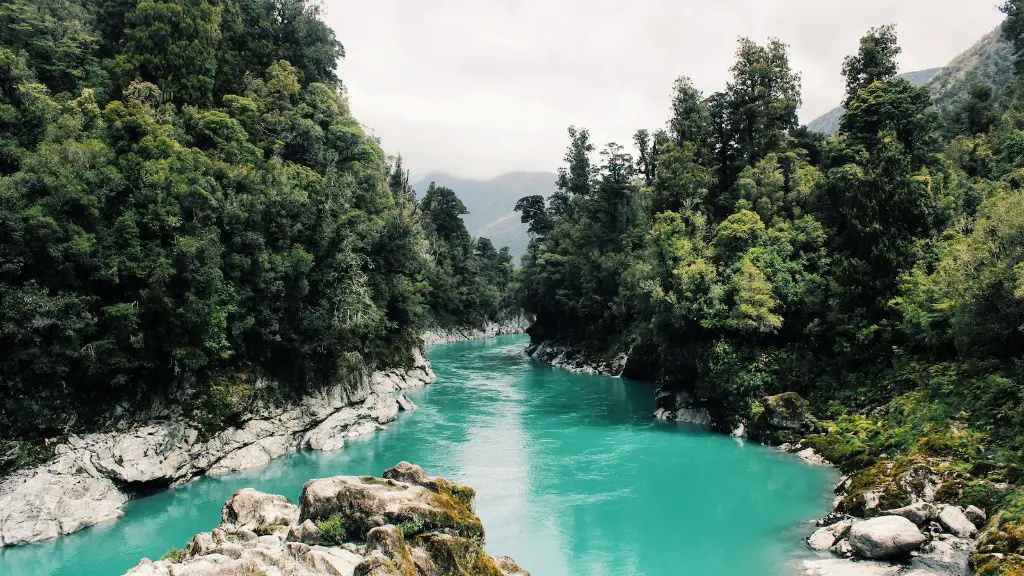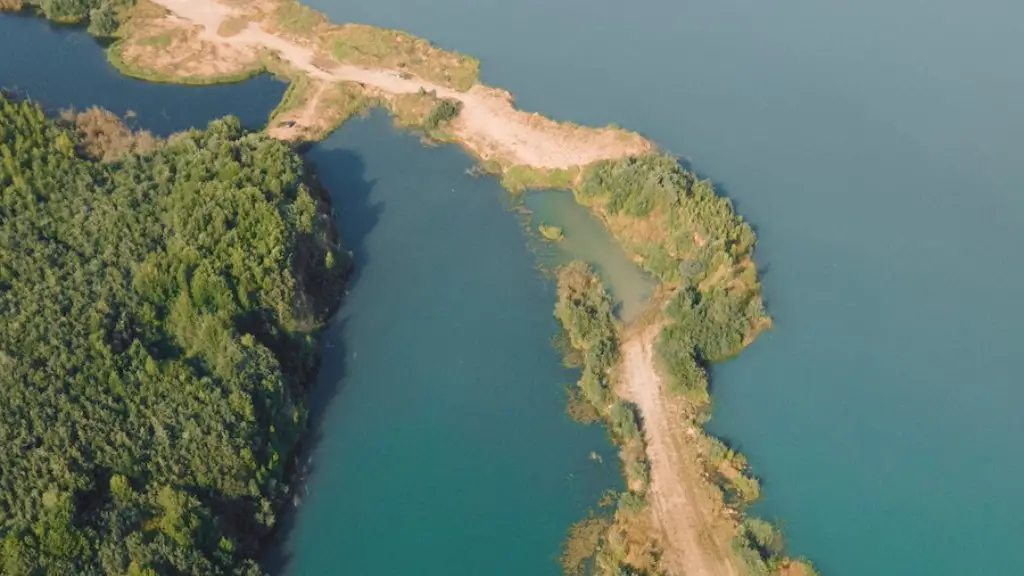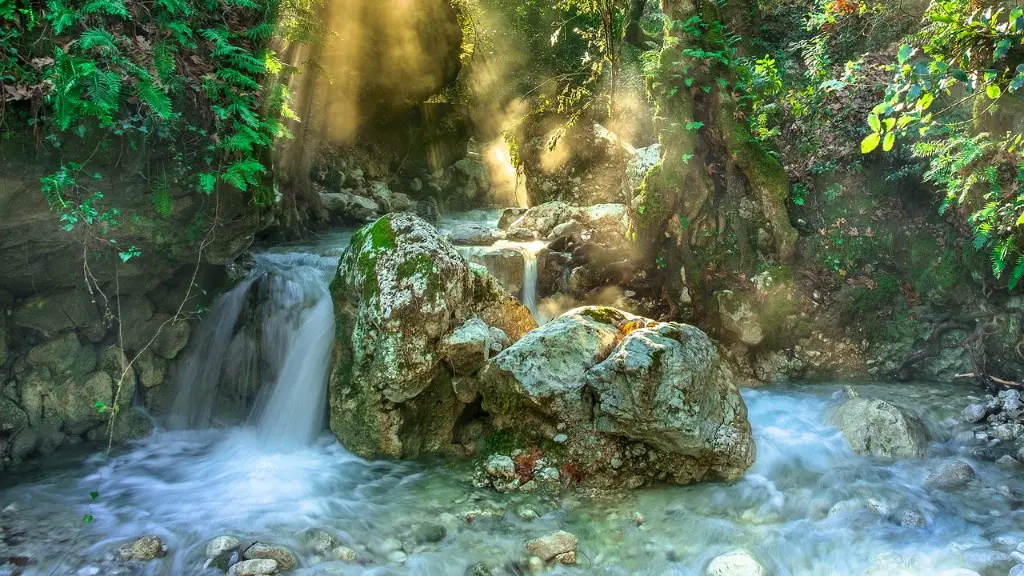Historical Influence
The Mississippi River has influenced the history of the United States in many ways and has been an integral part of the nation’s culture and heritage. The river has played a critical role in the development and growth of the nation and is often considered a symbol of freedom and opportunity. From the early days of the Native Americans and early settlers, to the Louisiana Purchase and American Revolution, the Mississippi was a major player in our nation’s history.
The river is also known for its role in the development of the transportation industry. For many years, the Mississippi River was the keystone of the Great Lakes and the Midwest. It was the waterway through which fur traders, merchants, and farmers used to ship their wares and to traverse the vast distances between the Midwest and the East Coast.
The Mississippi was important in the Civil War as it became the site of a number of battles, including the Battle of Vicksburg. The river was also famously seen in Mark Twain’s Adventures of Huckleberry Finn, and is even today known as the “Big Muddy” based on Twain’s description.
Environmental Issues
The Mississippi River is also known for the many environmental issues it faces. It is the fourth-largest river system in the world and has the second-largest watershed in North America. Unfortunately, this comes at a cost – the abundance of water resources in the area has resulted in contamination from industrial and agricultural runoff, as well as from chemical spills.
The river is also being threatened by climate change. Higher and more frequent flooding has already been observed in the region, along with an increase in water temperature. This has made the river a hotspot for deleterious impacts of climate change, such as species extinction and increased wildlife mortality.
Furthermore, water quality in the Mississippi is also at risk due to the excessive amounts of nitrogen, phosphorus, and sediment that flow into the river. Nitrogen and phosphorus cause the growth of algae, thereby reducing the oxygen required by aquatic life. In turn, this affects the entire food chain, leading to serious ecological problems. As a consequence, preservation of the Mississippi River is a key concern.
Conservation Efforts
To maintain the essential ecological functions of the Mississippi, several efforts have been implemented in recent years. These include the establishment of protected areas, such as the Upper Mississippi River National Wildlife and Fish Refuge, as well as the implementation of regulations that prevent certain activities, such as fishing, within certain areas.
Furthermore, research studies have been conducted in an effort to determine the most effective strategies for preserving the integrity of the river. In addition, various government agencies have implemented projects aimed at reducing pollutant levels and restoring the habitat. These efforts have been met with mixed results, but it is clear that more needs to be done to ensure the long-term health of the Mississippi.
Economic Impact
The Mississippi River also plays an integral role in the US economy. The river serves as an important commercial and transportation waterway for shipping and is home to numerous port cities, including St. Louis, Memphis, and New Orleans. It is also the main source of drinking water for millions of people in the Midwest and the South.
In addition, the Mississippi is a major source of recreation for millions of people, providing opportunities for fishing, boating, hunting, and camping. It is also home to wildlife from a variety of species, providing a unique habitat for wildlife. These activities support businesses related to tourism, fishing, and hunting, as well as providing jobs to local communities.
Moreover, the river is of great religious, cultural, and spiritual significance to many local communities. It is often seen as a symbol of freedom, renewal, and optimism and is a powerful link between generations of people within those communities.
Modern Day Use
Today, the Mississippi River is used for a variety of purposes, including agricultural irrigation, hydropower, and commercial shipping. The more than 200 dams and locks have enabled the regulation of water flow in the river, as well as providing an invaluable system of navigation and transport.
In addition, the Mississippi provides a number of recreational activities, giving visitors an opportunity to explore the region’s natural beauty. From bird watching to kayaking, there are numerous activities that can be enjoyed on the river.
Finally, the Mississippi is also a symbol of resilience and progress; both for the people living in the region and for the nation as a whole. The river has been of great significance since the beginning of the United States and continues to be a major part of our country’s national identity.
Tourism Potential
The Mississippi River’s potential as a tourism destination is vast. There are many cities that line the banks of the river and many of them boast excellent infrastructure, as well as museums, cultural and historical sites, and plenty of entertainment options.
In addition, the river provides ample opportunities for outdoor activities, such as fishing, kayaking, camping, and hiking. Not only does this provide tourists with amazing experiences and memories, but it also provides an important economic boost for the local economy.
Lastly, the river is home to a number of iconic landmarks, including the Gateway Arch in St. Louis, the USS Cairo Museum in Vicksburg, and the Riverwalk in New Orleans. As such, it’s likely that the popularity of the Mississippi River as a tourism destination will only continue to grow.
Innovative Projects
In addition to its potential as a tourism destination, the Mississippi River is also the site of a number of innovative projects. For example, the St. Louis Museum of Contemporary Art is currently developing a project that uses recycled materials from the river to create sculptures and other art installations.
Another project being developed by the city of Memphis is the Old River Project, which seeks to use the power of the Mississippi to generate energy. The project is still in its early stages, but it has the potential to become a major source of renewable energy in the area.
Finally, the Mississippi River is also being explored by environmental scientists as a potential source of carbon sequestration. This would involve pulling carbon dioxide out of the atmosphere and storing it in wetlands and other areas along the river.





